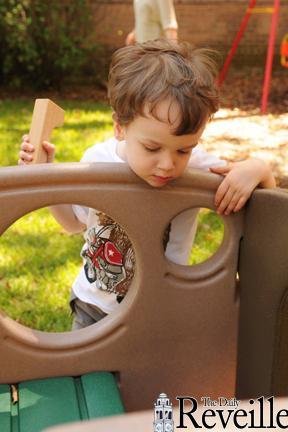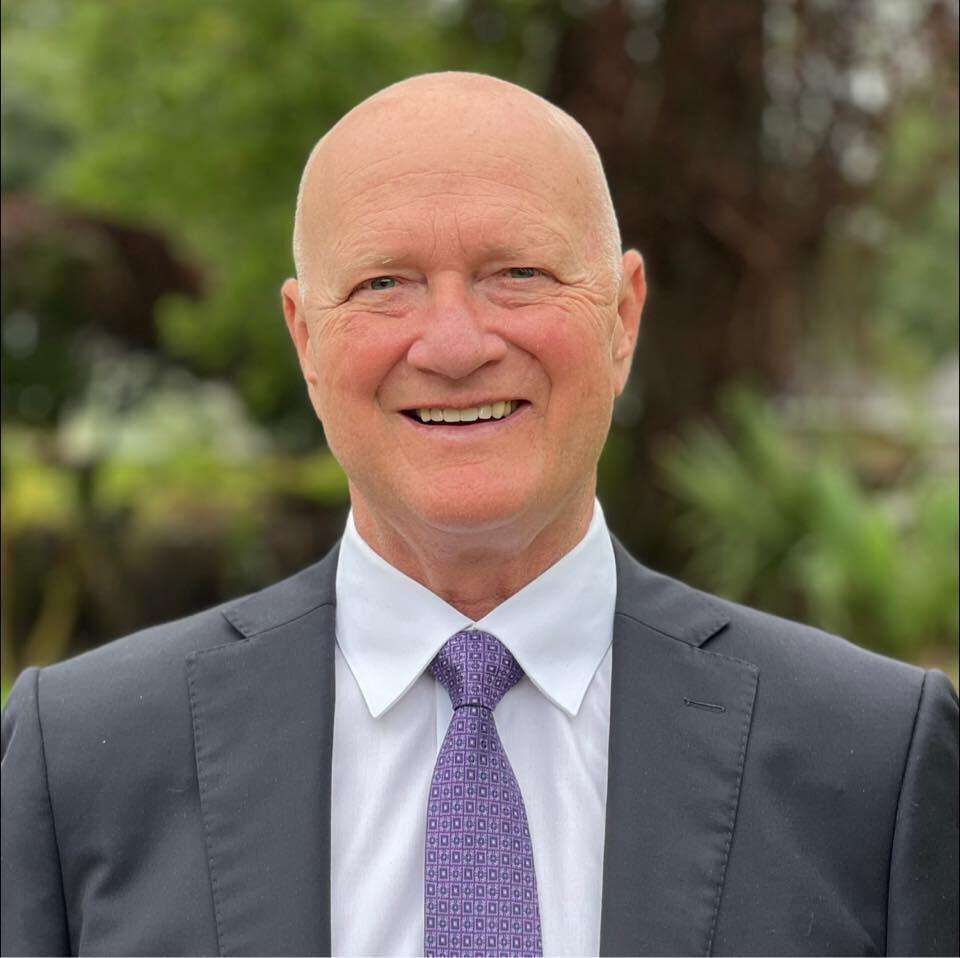Two-year-old Mason sits on a swing outside, eyes fixed on the ground and a slight smile on his face. “Do you want to slide?” asks graduate student Ashley Brown, Mason’s therapy student. Mason looks around, pausing at the sound of the clock tower, and decides to make his way to the other side of the playground. Shouts of excitement and encouraging words can be heard as other children climb and run in the playground of the LSU Language Preschool. The LSU Language Preschool, tucked between the College of Music and Dramatic Arts and the Student Health Center in the Dean French House, serves as a place of learning for children with autism and other learning disabilities. University students from the Communication Sciences and Disorders department provide therapy for the children three hours a day through reading, communication exercises, eating and outdoor play. Clinical Supervisor Laura Teague said there are several places in which children in the Baton Rouge area can receive services, but the LSU Language Preschool remains the only one in the area that offers one-on-one therapy in a group setting. Teague said the facility also sets the University apart from others regarding preschools that cater to children with disabilities. “Very few have preschools like this,” she said. “So it makes us pretty unique.” Teague said the children, who are typically 2 to 4 years old, learn to improve communication and play skills. “A lot of them learn to talk,” she said. “We have a lot of kids that come in nonverbal, and by the time they leave, they are speaking.” Five-year-old Anna Catherine and her twin sister, Addison, attend the preschool. Their mother, Amanda Juneau, said that Anna Catherine, who is developmentally delayed, started out only saying a few words like “go” or “bye.” Now she is starting her third semester at the preschool and can say three-word phrases, Juneau said. Juneau said her other daughter Addison, who suffers from cerebral palsy and is starting her second semester at the preschool, can now follow commands better. Juneau said the girls cry when she drops them off at public school, but when it comes time to go to the Language Preschool, there are no tears. “They’re happy to be there,” Juneau said. While Teague enjoyed seeing the progress the children make during their time at the preschool, she said she also liked watching the University students become professionals as they work with the children. Graduate student Katie Daigle spent her spring semester working at the preschool. She said even activities like snack time helped facilitate language from the children. Daigle said she would give her child about three Cheerios, and if the child wanted more, he or she had to ask for more. She said progress with the children at the preschool is slower than usual, and working there helped her gain patience. “I learned that even though you feel like you’re not making a difference, you really are,” Daigle said. Communication disorders senior Lindsey Mancuso is a student worker at the preschool. She said while she cannot provide therapy because she is not yet a graduate student, she still helps with keeping an eye on the children and assisting the graduate students with communication exercises. Mancuso said being involved at the preschool has given her a new interest in working with children. “My favorite part of working there is seeing the progress from beginning to end,” she said. Mancuso said progress is sometimes as small as a child learning to make a sound that he or she could not make before. “Sometimes, if we can get two kids to throw a ball between each other, that is a really big deal,” she said. Teague said in the future, the demand for therapy services like those of the preschool will increase. She added that children are now diagnosed with disabilities like autism earlier and the number of those children seems to be going up.
____ Contact Juliann Allen at [email protected]
Language preschool benefits University students
By Juliann Allen
Contributing Writer
Contributing Writer
September 3, 2012

ALYSSA SIRISOPHON / The Daily Reveille
Mason, two years old, plays outside during his first day as an LSU Language Preschool student at the Dean French House on Infirmary Road.






